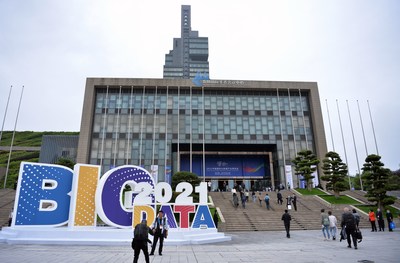EGADE Business School proporciona diversidade e prestígio ao Conselho
RESTON, Va., May 27, 2021 (GLOBE NEWSWIRE) — O Graduate Management Admission Council™ (GMAC™) divulgou hoje que a EGADE Business School do Tecnológico de Monterrey é o mais novo membro do Conselho. Localizada no México, a EGADE Business School foi selecionada por seus programas de categoria mundial e reconhecimento internacional dentro e fora da América Latina, adicionando grande representação da região à associação global que conta com as 229 melhores faculdades de business de todo o mundo.
“A EGADE Business School do Tecnológico de Monterrey desenvolveu sua reputação reconhecida mundialmente como a principal instituição de educação empresarial da América Latina, comprometida em capacitar líderes empresariais que criam valor compartilhado e transformam a sociedade”, disse o Dr. Osmar Zavaleta, reitor interino da EGADE Business School. “A EGADE está empenhada no intercâmbio de ideias e melhores práticas com os nossos pares globais, e a adesão ao GMAC representa uma plataforma valiosa para aprimorar esse intercâmbio com outras faculdades membros do GMAC”.
“A pandemia nos ensinou a ser inovadores e adaptáveis em um ambiente disruptivo de um mundo interconectado”, disse Sangeet Chowfla, presidente e CEO do GMAC. “Apreciamos a visão global e a abordagem holística da EGADE Business School e estamos prontos para receber sua contribuição para o avanço da educação em gestão de pós-graduação.”
A EGADE Business School faz parte de um seleto grupo de instituições internacionais que formam a “coroa tripla” de excelência dos três principais sistemas globais de acreditação para avaliação da qualidade da educação empresarial e melhoria contínua: Association to Advance Collegiate Schools of Business (AACSB), Association of MBAs (AMBA) e EFMD Quality Improvement System (EQUIS). Pelo quarto ano consecutivo em 2021, a EGADE Business School liderou o ranking Quacquarelli Symonds (QS) no México e na América Latina por seu MBA em Tempo Integral em Inovação, e Empreendedorismo e Mestrado em Finanças, sendo incluída pela primeira vez como líder regional por seu recém-lançado Mestrado em Gestão.
Para ser membro do GMAC, a faculdade deve ter um processo seletivo de admissões; oferecer um programa de mestrado de gestão, assuntos de gestão ou equivalente; demonstrar suporte à missão do GMAC por meio do uso dos seus produtos de admissão e inscrição.
Sobre o GMAC™
O Graduate Management Admission Council (GMAC – Conselho de Admissão de Gestão de Pós-Graduação) é uma associação global das principais faculdades de pós-graduação em business. Fundado em 1953, o GMAC está empenhado em criar soluções para faculdades e candidatos de business para que eles possam encontrar, avaliar, e se conectar uns com os outros.
O GMAC™ oferece pesquisas internacionais, conferências da indústria, ferramentas de recrutamento e avaliações para a indústria de graduação em gestão, bem como ferramentas, recursos, eventos e serviços que ajudam a orientar os candidatos na sua jornada rumo ao ensino superior. De propriedade e administrado pelo GMAC, o teste Graduate Management Admission Test™ (GMAT™) é o exame mais amplamente utilizado pelas faculdades de business em todo o mundo.
O GMAC™ também é proprietário e administra o exame NMAT by GMAC™ (NMAT™) e Executive Assessment (EA). Mais de 7 milhões de candidatos na sua jornada de mestrado em business ou MBA visitaram mba.com do GMAC no ano passado para explorar as opções de faculdades de business, se preparar e se inscrever em exames, e obter conselhos sobre o processo de admissão. BusinessBecause e The MBA Tour são subsidiárias do GMAC™, uma organização global com escritórios na China, Índia, Reino Unido e Estados Unidos.
Para mais informações sobre o nosso trabalho, visite www.gmac.com.
Contato com a Mídia:
Teresa Hsu
Gerente Sênior, Relações com a Mídia
202-390-4180 (celular)
thsu@gmac.com

